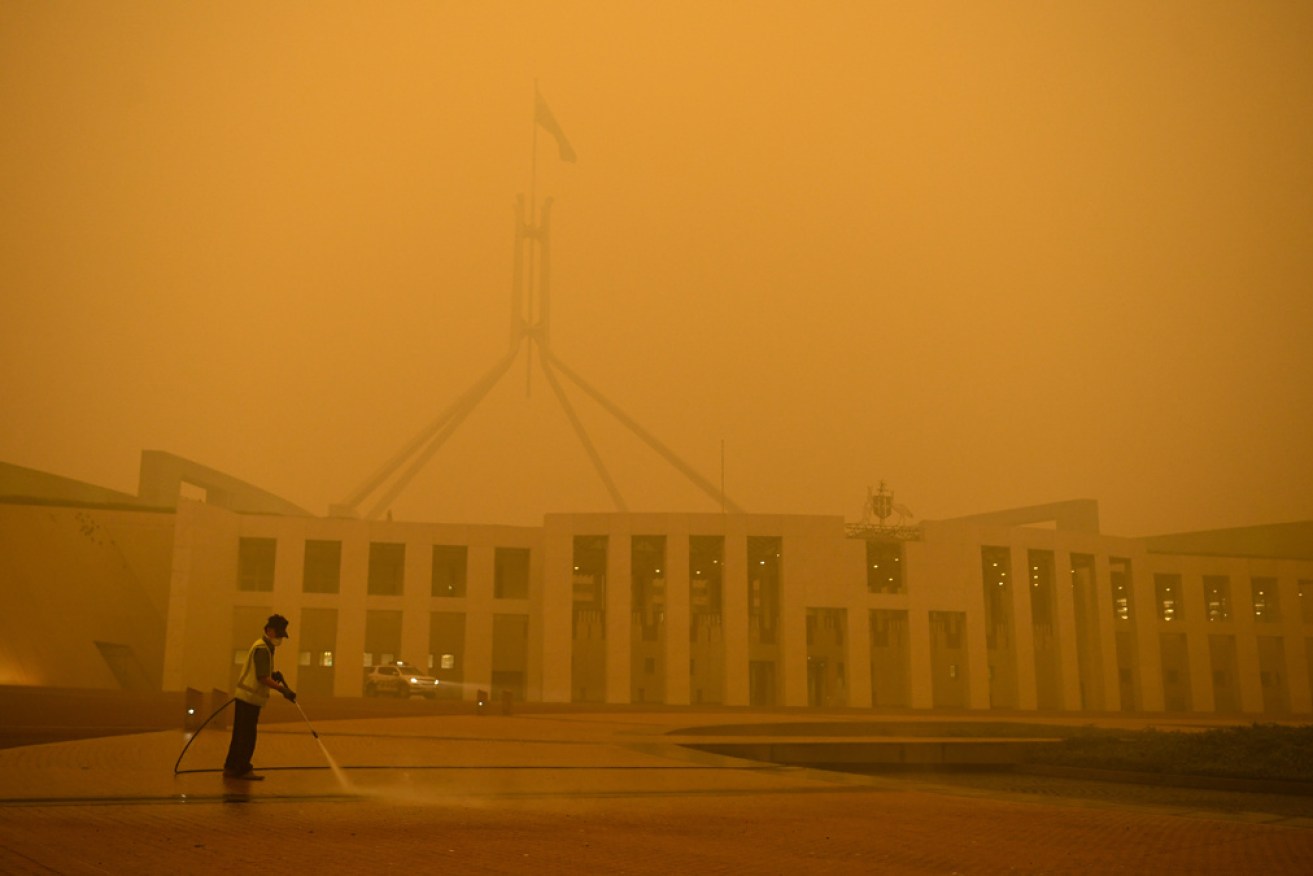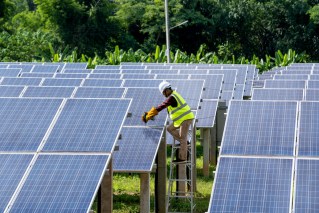Smoked out: How the bushfires are affecting Australian businesses


Hazardous smoke is hurting workers and reducing Australia's economic productivity. Photo: AAP
As bushfire smoke reaches hazardous levels across large swathes of the country, workers are being forced to choose between their health and their wallets.
The extreme smoke levels have prompted numerous businesses to temporarily close, with employees either encouraged to take annual leave, or stood down until the air quality improves.
Even the government department responsible for emergency management, the Department of Home Affairs, has reportedly closed its doors.
For some workers, being stood down can mean a loss of income under the current Fair Work Commission rules for handling natural disasters.
Now the Council of Small Businesses of Australia (COSBOA) is calling for clearer guidance and better support to help both workers and employers negotiate extended periods of poor air quality.
Speaking to The New Daily, COSBOA chief executive Peter Strong said some workers are still exposed to hazardous smoke at home and may wish to keep working and earning an income.
“So do you come to the agreement that you keep coming to work and hope the smoke clears away? But then the employee could sue the employer for not doing it right,” he said.
Creating formal industry-based guidance specifically addressing what to do in extended periods of smoke coverage and the use of protective equipment such as respiratory masks would help fix this problem, Mr Strong said.
Workers are entitled to take personal, carer’s, or compassionate leave during natural disasters to care for themselves and their family.
‘No one should do physical work’
Australian Council of Trade Unions (ACTU) secretary Sally McManus weighed in on Twitter, encouraging workers to “remain in an enclosed structure” when smoke reaches hazardous levels.
Tweet from @sallymcmanus
Ms McManus added that anyone working outside should take breaks when air quality becomes unhealthy.
“No one should do physical work outside when hazardous,” she said.
Fires burn billion-dollar hole in GDP
Terry Rawnsley, national leader for economic and social analysis with SGS Economics and Planning, estimated the smoke blanketing Sydney in December cost the city as much as $50 million a day.
Those losses equate to between 1 and 2 per cent of the city’s daily economic productivity.
Heavy smoke setting off office block fire alarms, employees calling in sick, and consumers choosing to stay home all played a role in the lower economic activity.
Mr Rawnsely told The New Daily the smoke now covering Canberra will likely have a similar impact on the country’s capital.
Insurance claims relating to the fires have already reached $375 million according to the latest Insurance Council of Australia data.
But the true cost to the country will extend far beyond insurable losses and, based on the claims victims have already made, Mr Rawnsley predicts the nation’s GDP will suffer a hit of between $1 billion and $2 billion.
Mr Rawnsely said GDP growth in 2019-20 will likely see a 0.15 per cent reduction, based on those current numbers.
“We also know that there’s also going to be a lot more claims coming through, so that $375 million insurable losses is only going to go up, so the broader impact will probably go up as well,” he added.
Helping through holidays
COSBOA’s Mr Strong said the best way for Australians to help out the affected communities is to visit them, to take a day trip (or if possible a longer vacation) and shop in their stores, visit their facilities and tourist spots, and spend money.
“The story there is that places like Bateman’s Bay have been devastated,” he said.
“I haven’t been down there so I don’t know, but my experience with these sorts of things is that it will still have beaches. There’s still a lot of fish in the sea.
Do good by having a good time.
Mr Rawnsley agreed that visiting fire-ravaged towns will be a big help to hurting communities.
But he also noted that in some cases fires which swept through towns in December still pose a threat, and businesses in these towns face further delays before they can re-open – making bushfire relief donations just as important.
Those unable to donate money but still eager to help can also look for volunteer work to assist in the recovery, Mr Rawnsley said.








